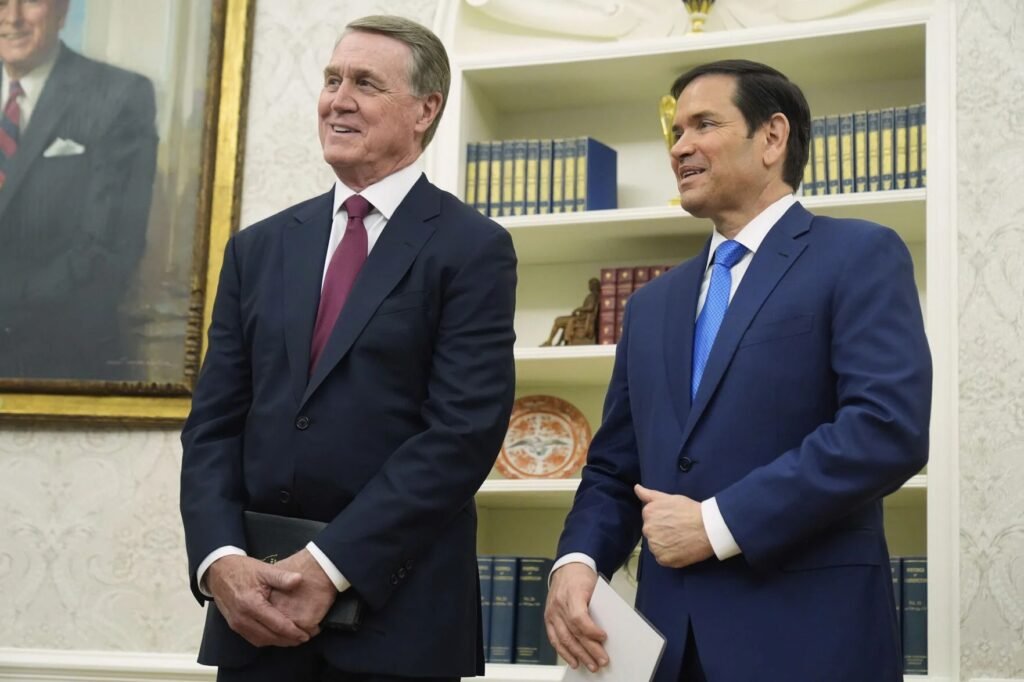David Perdue, a former U.S. senator and business executive, arrived in Beijing on Thursday to begin his new role as the United States ambassador to China. His arrival comes at a time when the U.S. and China have agreed to reduce tariffs that caused tensions in global trade.
Perdue is 75 years old and has experience in both politics and business. He served as a senator from Georgia from 2015 to 2021 and has held leadership roles in various companies in industries like clothing and logistics. His appointment reflects the U.S. government’s efforts to strengthen diplomatic relations with China during a sensitive period.
Recently, the U.S. and China reached an agreement to lower tariffs on goods traded between the two countries. The U.S. reduced its tariff on Chinese products from 145 percent to 30 percent, while China lowered its tariff on American goods from 125 percent to 10 percent. These new tariff rates took effect on Wednesday.
The reduction in tariffs is seen as a temporary pause in a trade war that had affected businesses and markets worldwide. Stock markets in New York, London, and Hong Kong reacted positively, rising back to levels seen before the recent tariff increases.
Despite this positive response, some business owners remain cautious. They are waiting to see if the tariff reductions will hold or if further trade conflicts will arise. The agreement offers short-term relief, but many underlying issues between the two countries remain unresolved.
David Perdue’s background in both business and politics may help him navigate the complex trade relationship between the U.S. and China. His role as ambassador is important because it helps maintain communication and diplomacy during ongoing disputes over trade, security, and technology.
Challenges remain, including disputes over intellectual property rights, market access, and technology transfers. China has also expanded trade relations with other countries during the conflict, which could affect the future balance of trade with the U.S.
More talks between the U.S. and China are expected in the coming months, though no official dates have been announced. Both sides aim to find longer-term solutions to their trade differences, but the current tariff cuts provide only temporary relief.

